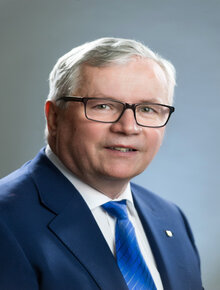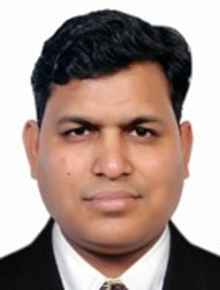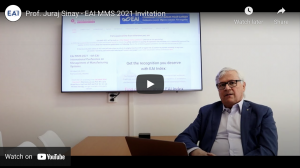
Dr.h.c. mult Prof. Ing. Juraj Sinay, DrSc.
Title: Hydrogen – the energy medium of the future. National Hydrogen Strategy of the Slovak Republic
Bio:
Juraj Sinay is a professor at the Faculty of Mechanical Engineering of the Technical University of Košice and at the Faculty of Safety Technology of the Technical University of Ostrava. He is currently the Coordinator of Hydrogen Technologies at the Ministry of Economy of the Slovak Republic. As part of this activity, he manages the team to elaborate on the National Hydrogen Strategy of the Slovak Republic. As part of his scientific activities, he solved projects within the Agency VEGA, KEGA and APVV. Recently, he was a responsible solver of projects aimed at solving risk management within Industry 4.0, focusing on the automotive industry and currently also on the use of hydrogen technologies, especially in transport machinery and equipment. During his tenure, he trained 26 doctoral students in risk management, 3 of them from abroad. He created the Košice School of Security with responses abroad. For 18 years he headed the Department of Safety and Quality of Production at the Faculty of Mechanical Engineering of the Technical University in Košice. He completed many short-term, and long-term study stays abroad. From 1988 to 2001, he worked in research at the University of Berg in Wuppertal (Germany), wherein 2021 he defended his habilitation thesis on risk management of transport machinery. From 2000 to 2007 he was the rector, and from 2007 to 2015 he was the vice-rector of the Technical University in Košice. From 2015 to 2018, he led the Association of the Automotive Industry of the Slovak Republic. He is currently a member of the expert group in the Maschinen und Systemsicherheit IVSS section in Mannheim BRD, Germany, vice-president of the VDI Gesellschaft für Sicherheitswissenschaften in Cologne (Germany), and a member of the German-speaking conference of transport engineering professors in Europe. During his professional career, he was a member of several scientific councils of universities and faculties in the Czech and Slovak Republics. His scientific activities were awarded honorary degrees at four universities in Europe (Hungary, Ukraine, Germany and the Czech Republic). During his almost 30 years of scientific work, he has published as an author and co-author 9 monographs (4 of them in the Slovak Republic and 5 in abroad), 2 chapters in encyclopaedias by CRC Press in the USA, 25 articles in WoS, 30 articles in professional journals abroad, and 21 articles in SR. He has actively participated in more than 70 international scientific and professional conferences. The focus of his publishing activities is primarily on the topic of prevention and risk management of machines, the quality of university education, and the management of science and technology.
Abstract:
The Paris Agreement to achieve a climate-neutral society by 2050 has created incentives for countries to seek solutions that can achieve ambitious goals. One of the effective options is to reduce greenhouse gases (CO2 emissions), which arise mainly from fossil fuels. One effective alternative is to replace them by using hydrogen as an effective energy carrier. Its use does not create any emissions in the energy mix. During its processing, it is generated as wastewater, or in the form of water vapour. Hydrogen technologies are used mainly in the chemical, petrochemical and metallurgical industries, and various mobility (transport). The strategic importance of hydrogen use is defined in the Hydrogen Strategy for a Climate Neutral Europe – COM / 2020/301 of 8 July 2020. The Slovak Republic has joined the countries (Germany, the Netherlands and the Czech Republic and Italy) adopted their national hydrogen strategy. The National Hydrogen Strategy of the Slovak Republic will create conditions that will place Slovakia among the countries that will actively contribute to achieving the Paris Declaration’s goals and thus contribute to ensuring its competitiveness in the European Economic Area.

Dr. Brij B. Gupta
Title: Cyber Security and Critical infrastructure Protection: Opportunities and Future Prospective
Bio:
Brij B. Gupta received PhD degree from Indian Institute of Technology Roorkee, India in the area of Information and Cyber Security. He published more than 300 research papers in International Journals and Conferences of high repute. His biography was selected and published in the 30th Edition of Marquis Who’s Who in the World, 2012. Dr. Gupta also received Young Faculty research fellowship award from MeitY, government of India in 2017. He is also working as principal investigator of various R&D projects. He is serving as associate editor of IEEE Access, Associate editor of IJICS, Inderscience and Executive editor of IJITCA, Inderscience, respectively. He was also visiting researcher with Yamaguchi University, Japan, with Deakin University, Australia and with Swinburne University of Technology, Australia during 2015, 2017, and 2018, respectively. Additionally, he was visiting professor with Temple university, USA and Staffordshire University, UK during June, 2019 and July 2019 respectively. At present, Dr. Gupta is working as Assistant Professor in the Department of Computer Engineering, National Institute of Technology Kurukshetra India. His research interest includes Information security, Cyber Security, Cloud Computing, Web security, Intrusion detection and Phishing.
Abstract:
Today, computers are increasingly being used for storing and retrieving information. Some of this information is of a sensitive nature requiring adequate security measures to safeguard the sensitive information. It has also brought unparalleled and potential challenges with them. Moreover, attackers keep changing their attack strategies rapidly to hide their actually identy. In addition, cyber space is considered as fifth battle-field after land, air, water andspace. Therefore, strengthening the security has become a vital homeland security mission and critical infrastructure protection. Security Challenges is the protection of information systems, hardware, software, and information as well from theft, damages, interruption or misdirection to any of these resources and critical infrasturetures. Therefore, to protect against various attacks, security specialists need to keep concocting new schemes to control any new attacks. While protecting against naïve attacks, some type of advanced techniques should be included in the lineup of security tools or software. Hence, in this talk, I will introduce the principles of cyber security aspects and awareness about the various tools and techniques forsecuring the information from variety of attacks against critical infrastructure. Moreover, I will also discuss various security solutions to protect various critical infrastructures against these attacks.


